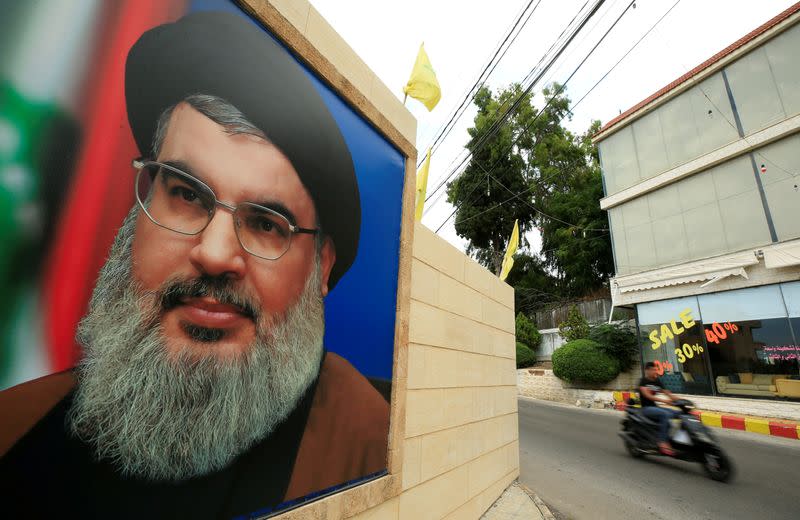BEIRUT (Reuters) – Hezbollah chief Sayyed Hassan Nasrallah said on Thursday that he would support a new Lebanese cabinet if one were announced on Monday, but said a government made up of experts alone would not last.
President Michel Aoun is scheduled to meet with appointed Prime Minister Saad al-Hariri next week.
The two politicians have been arguing for months as the country sinks further into the financial crisis.
Aoun is an Iran-backed Hezbollah ally, listed as a terrorist group by the United States.
“If the appointed prime minister agrees with the president on a government of experts on Monday, we will agree,” Nasrallah said in a televised speech.
“Now I am telling everyone a government of technocrats and politicians that will not allow anyone to shirk responsibility is better,” he said.
Lebanon’s economic collapse represents the greatest threat to its stability since the 1975-1990 civil war.
Politicians, since the end of 2019, have not reached an agreement on a rescue plan to unlock the foreign money that Lebanon desperately needs.
Hariri met Aoun on Thursday after a heated political exchange on Wednesday, after saying that a new cabinet that would re-embark on the IMF was the only solution to Lebanon’s problems.
Nasrallah said that a government seeking to implement the reforms required by the International Monetary Fund would struggle with issues such as removing subsidies.
“If the IMF comes and says that we should suspend subsidies, will the Lebanese be able to afford it?” Nasrallah said.
Lebanon’s negotiations with the IMF were stalled last year because of a dispute between government officials, bankers and political parties over huge financial losses.
The financial crisis has caused the value of the Lebanese pound to sink 90%, plunging many into poverty and jeopardizing imports as dollars have run short.
The currency has fallen so fast in recent weeks, losing a third of its value, that it has sent protesters to the streets and forced the closing of stores and groceries.
Nasrallah blamed the head of the central bank, Riad Salameh, for the fall of the currency.
“You can work to prevent deterioration, but you are not,” he said, addressing Salameh.
Nasrallah also said that external and internal entities were trying to push Lebanon into a civil war scenario, without giving further details.
“I have information that there are external forces and some internal forces that are pushing for civil war … they are looking for fuel to add to oil,” said Nasrallah. Speaks.
(Reporting by Maha El Dahan and Laila Bassam; Editing by Angus MacSwan)
